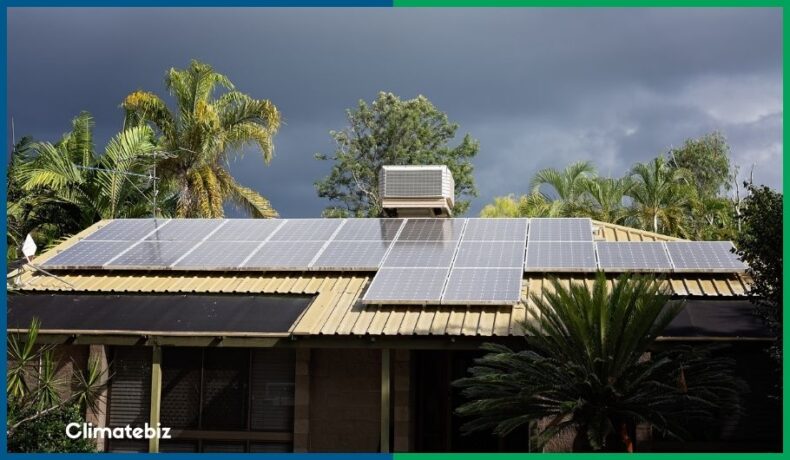As more homeowners turn to solar power, you may wonder, “are solar panels on my roof an option for me?” more and more these days.
If this sounds like you, and you’re curious to find out what makes a rooftop solar system a viable option, then you’ve come to the right place!
Solar panels on your roof are all about optimization and efficiency, so it’s crucial to ensure you’re all set from the get-go.
This article discusses what makes a roof suitable and the pros and cons of this type of system.
Table of Contents
Can I Have Solar Panels On My Roof?
Is My Roof Suitable For Solar Panels?
For a successful solar experience, the roof and panel relationship must be a perfect match!
Roof Type
When it comes to solar panel installation, you must establish the type of roof your property has.
Strong and durable roof tiles or materials are best. More specifically, materials like concrete tiles or composite shingles.
Clay tiles are not as ideal, and you will need to consult a solar professional who is extensively experienced in installation on these types of roofs.
Roof Age
A key piece of information to remember is that solar panels have a long lifespan. How long exactly? Well, they can last effectively up to 30 years!
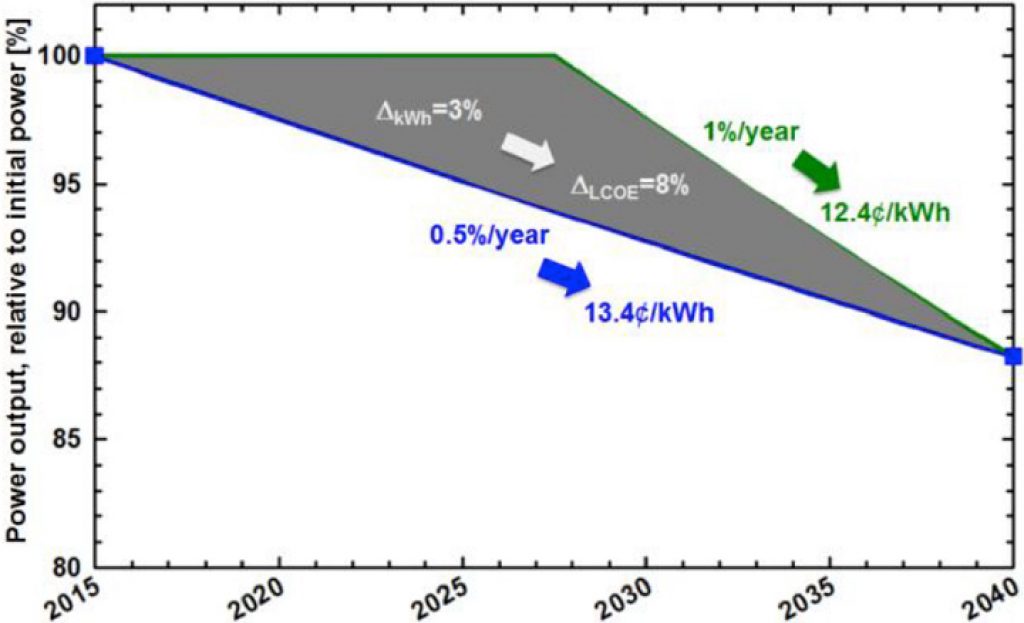
Source: National Renewable Energy Laboratory
Because of this, roof age plays an important role. If your roof needs replacing soon, you must ensure this is done before any installation — a solid foundation is critical!
Roof Angle
When it comes to optimal sun exposure, the angle is everything!
The ideal roof angle for solar panels is around 45 degrees, with numerous households placing theirs at approximately 30 degrees.
The angle or pitch of your roof will determine whether you need to have added racking systems to angle your panels.
Essentially, your roof angle determines your solar panel angle, and if the extra infrastructure is needed, then a roof with these angles is best suited!
Related Reading: What Direction Should Solar Panels Face For Max Efficiency?
Your Roof Sunlight And UV Exposure
The solar irradiation your roof receives is the crux of your solar panel placement.
A study conducted in Colorado looked at sun exposure on solar panels and showed the following:
| Solar Panel Sun Exposure | PV Generation |
|---|---|
| South and West | Peak of 1.2 kWh around midday |
| South | Peak of roughly 1.4 kWh earlier in the day |
| West | Peak of just over 1 kWh later in the day |
Solar panels placed towards the south and west will generate less power than those with sun exposure towards the south only.
Panels facing west will generate less power and only later in the day.
In other words, placing your panels south will provide you the most exposure and PV power, and earlier in the day, too (as shown in the image below).
A roof with these directional and exposure capabilities is a well-suited one!
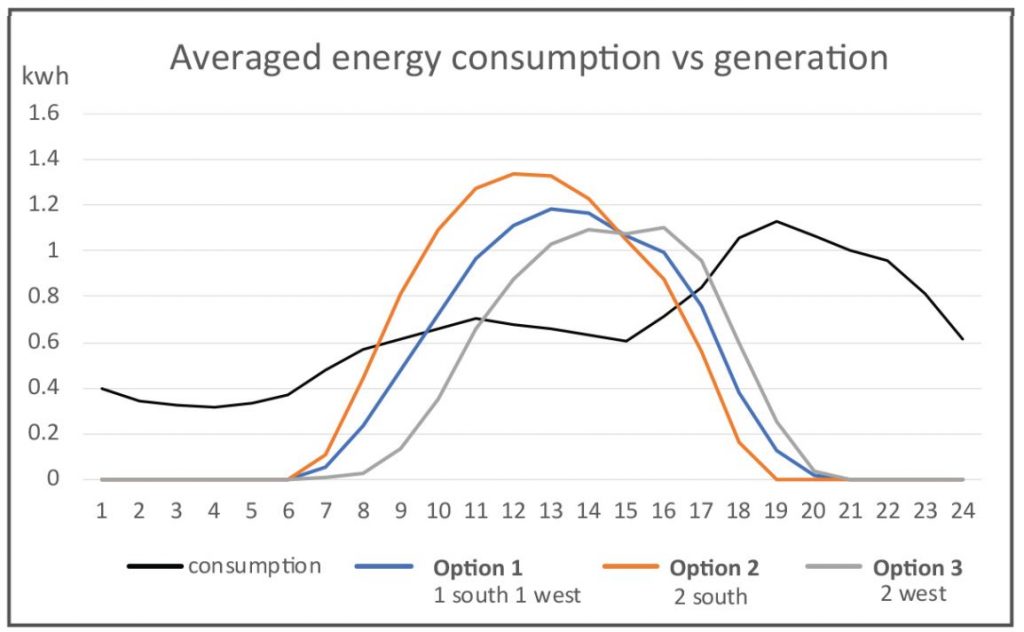
Source: Researchgate
Water Drainage
When wondering, “can I have solar panels on my roof?” it’s crucial not to forget water drainage!
Sometimes when it rains, it pours, and the water must be able to drain correctly.
If the installation of your panels would not cause an obstruction for flowing water or divert the direction, which may lead to structural problems, then your roof is suitable!
Below is a short clip summarizing a few main points discussed in this section.
Related Reading: Tesla Solar Roof (Everything you need to know)
How Much Weight Do Solar Panels Add To A Roof?
The load your roof can withstand is another factor that will help you determine whether you can have solar panels on your roof.
As the National Renewable Energy Laboratory points out, a PV system can add roughly 1.3 kilograms of weight (2.8 lbs) per 0.09 square meters (0.29 feet).
However, this depends on the type of solar panels you install.
The following image from Kansas State University shows a few examples of the weight differences, with panels such as the Kyocera coming in at a whopping 16.5 kilograms (36 lbs)!
Please note: to convert from pounds (lbs) to kilograms (kg), simply the pound mass value by 2,205
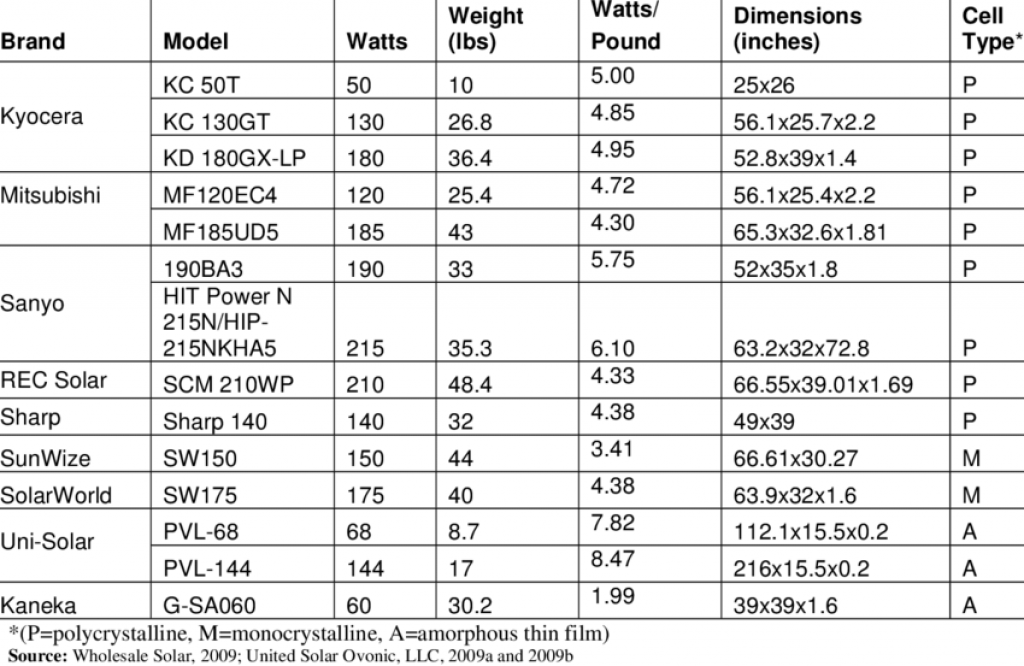
Source: Researchgate
To determine the exact weight, you must research the type and brand of solar panels you wish to install.
Related Reading: 5 Best SunPower Solar Panels You Can Buy
Pros And Cons Of Adding Solar Panels To Your Roof
As with most things in life, one must weigh the pros and cons — rooftop solar panels are no different.
According to Renewable and Sustainable Energy Reviews academic journal, these are important to consider.
So, let’s take a closer look…
Pros
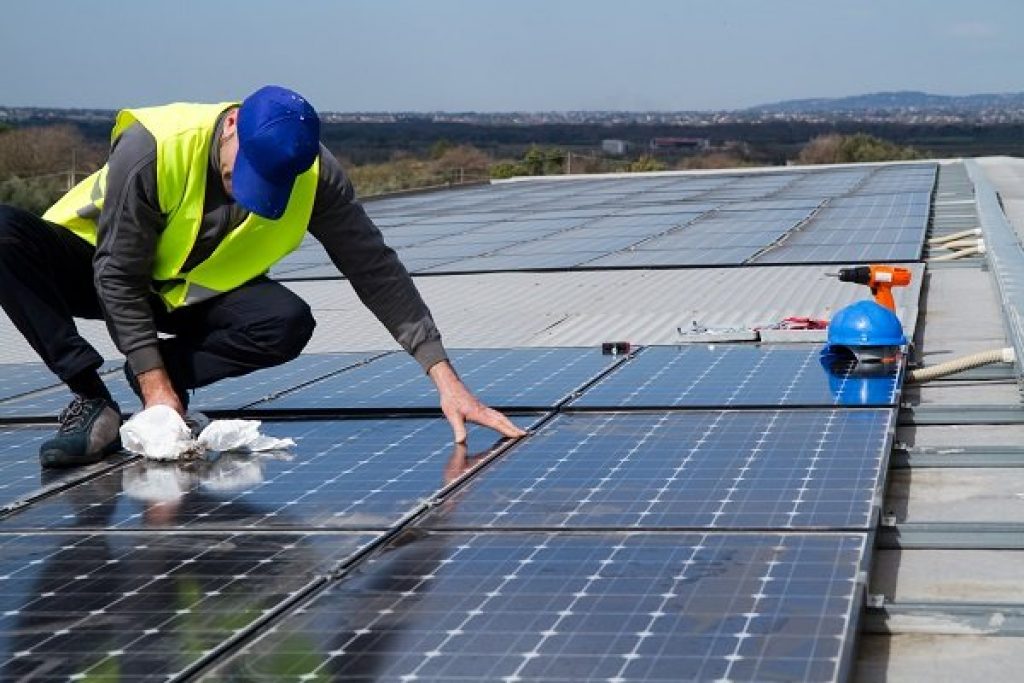
- System Reliability: rooftop solar panels are a dependable way of providing renewable energy. These systems are well-designed and well-developed, making solar a well-researched form of green technology that remains reliable.
- Low Running And Maintenance Costs: rooftop solar panels require little in the way of maintenance. However, these panels can last for roughly 30 years! So you still need to keep them clean and check for damage once now and then.
- Cleaner Greener Energy: solar rooftop systems have zero carbon emissions, making them more environmentally friendly.
- No Noise: rooftop arrays emit absolutely no noise when running. As such, you can enjoy the quiet surrounding environment as your panel’s photovoltaic cells soak up the sun in silence.
- Power Generation At Home: one of the best personal benefits of having rooftop panels is that you can generate your own power in your home.
- Tax Incentives: many states offer tax rebates, schemes, and incentives for utilizing green energy. These tax credits can save you a pretty penny, given the high cost of initial installation!
Cons
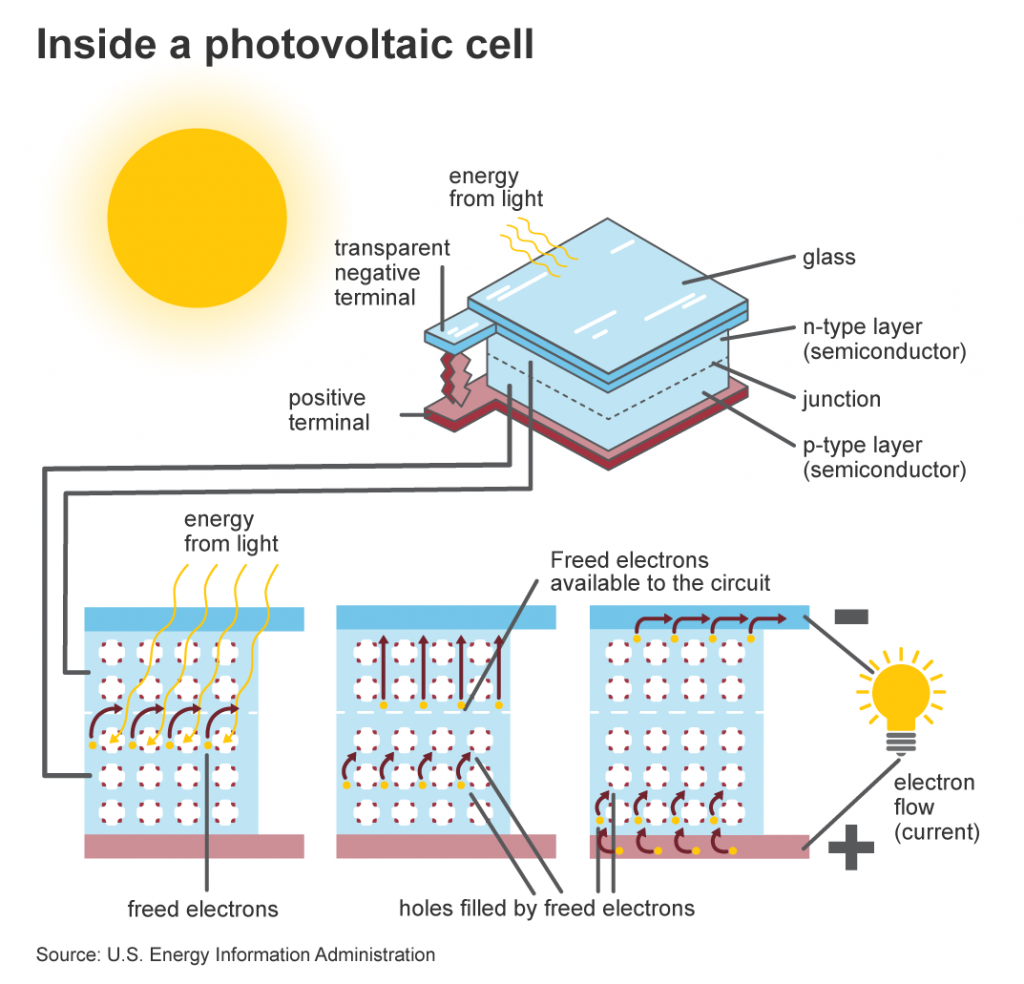
Source: U.S. Energy Information Administration
- Costly Initial Installation: solar panel installation is an expensive affair! According to the Solar Energy Industries Association, this can set you back around $2.94 per watt. However, exact figures will depend on various factors such as system size, location, and available incentives. Moreover, if your roof needs additional work or infrastructure, you will need to pay more.
- Spatial Limitations: a certain number of solar panels will be required to meet your home energy needs. If you have a small roof, you might find there is insufficient space for the size or number of panels you require.
- Climate Dependency: sun exposure will make or break your rooftop solar system. Unfortunately, if you’re situated in an area with minimal sunshine or weak UV rays hours, you might struggle to make your energy ends meet.
Final Thoughts
When it comes to solar arrays, you must evaluate the suitability of your roof.
Start by looking at the roof materials, type, design, and exposure your panels will get. The last thing you want is for your system to come crashing down!
Additionally, weighing up the pros and cons you may face is vital.
This way, you can make an informed decision about your system and foresee potential problems you can address well in advance!
If you want to share your thoughts or ask us a question, please feel free to reach out to us in the comments section below! Alternatively, visit our forum or follow us on Twitter!

